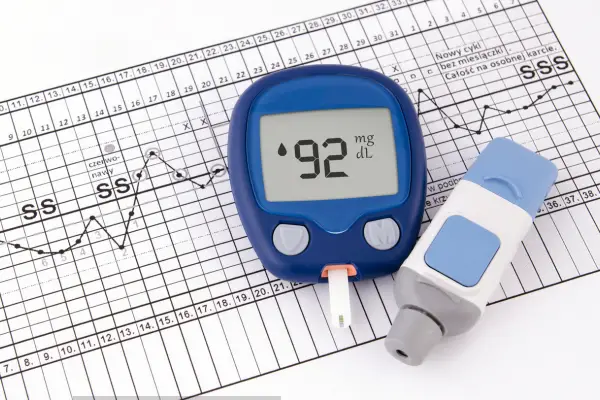Table of Contents
Understanding Diabetes Screening
Diabetes screening is crucial for early detection and effective management of diabetes. The goal of screening is to identify individuals at risk before symptoms appear. Regular screening helps prevent complications related to diabetes, such as heart disease and kidney damage. Various methods can assess your risk, each with its own timing and approach.
- Fasting Blood Sugar Test: Measures blood glucose levels after fasting for at least 8 hours. It’s usually done in the morning for accurate results.
- Oral Glucose Tolerance Test (OGTT): Involves fasting overnight, followed by drinking a sugary solution. Blood sugar is tested at intervals to see how well your body processes glucose.
- Hemoglobin A1c Test: Reflects your average blood glucose levels over the past 2-3 months. It doesn’t require fasting and can be done any time of day.
Choosing the right test depends on individual health factors and risk levels. For instance, the A1c test is preferred for regular check-ups due to its comprehensive nature, while fasting glucose tests might be used for initial screenings. Regular monitoring helps in early diagnosis and better management of diabetes, reducing the risk of serious health issues.
Optimal Timing for Diabetes Screening
Timing plays a significant role in the accuracy of diabetes screening tests. Each method has specific timing requirements that impact its reliability. Adhering to these guidelines ensures that your results are as accurate as possible.
- Fasting Blood Sugar Test: Best conducted in the morning after an overnight fast. It’s important to avoid eating or drinking anything other than water for at least 8 hours before the test.
- Oral Glucose Tolerance Test (OGTT): Usually performed in the morning after an overnight fast. The test involves fasting, drinking a glucose solution, and then having blood drawn at intervals.
- Hemoglobin A1c Test: Can be done at any time of the day, as it doesn’t require fasting. It’s ideal for monitoring long-term glucose control and can be scheduled flexibly.
Understanding the optimal timing for each test helps in achieving the most accurate results. It’s advisable to follow the specific instructions given by your healthcare provider to ensure that the screening accurately reflects your glucose levels. Accurate timing of the tests can significantly impact the effectiveness of diabetes management and treatment plans.
Methods for Effective Diabetes Screening
Effective diabetes screening involves using the right methods at appropriate intervals. Each method has specific advantages and can be used in combination for a thorough assessment. Understanding these methods can help you make informed decisions about your health.
- Fasting Blood Sugar Test: Provides a snapshot of your glucose levels after fasting. It’s a common initial test to identify potential diabetes or prediabetes.
- Oral Glucose Tolerance Test (OGTT): Offers a more detailed view of how your body handles glucose. It’s useful for diagnosing diabetes and assessing the effectiveness of dietary and lifestyle changes.
- Hemoglobin A1c Test: Ideal for ongoing monitoring of diabetes management. It helps track long-term glucose control and the effectiveness of treatment plans.
Choosing the right combination of tests depends on individual health needs and risk factors. Regular screening and using multiple methods can provide a comprehensive view of your glucose levels and help in the early detection of diabetes. This approach allows for timely interventions and effective management of the condition.
Preparing for Diabetes Screening
Preparation is key to ensuring accurate diabetes screening results. Proper preparation involves following specific instructions related to fasting, diet, and timing. Adhering to these guidelines can prevent inaccuracies and provide a clear picture of your glucose levels.
- Fasting Blood Sugar Test: Avoid eating or drinking anything other than water for at least 8 hours before the test. It’s best to schedule the test for the morning to align with the fasting requirement.
- Oral Glucose Tolerance Test (OGTT): Follow fasting instructions and avoid eating or drinking other than water before the test. Be prepared to stay at the testing location for a few hours.
- Hemoglobin A1c Test: No special preparation is needed. You can eat and drink normally before this test, making it a convenient option for regular monitoring.
Proper preparation for each type of diabetes test ensures that the results are accurate and reliable. Following the instructions provided by your healthcare provider is crucial for getting the most out of your screening and managing your health effectively.
Regular Screening and Its Importance
Regular diabetes screening is essential for maintaining good health and preventing complications. Routine screenings help detect diabetes early, even before symptoms appear. This proactive approach allows for timely interventions and effective management of the condition.
- Preventing Complications: Early detection helps in preventing serious health issues associated with diabetes, such as heart disease, kidney problems, and vision loss.
- Monitoring Progress: Regular screenings track the effectiveness of diabetes management strategies and treatments, allowing for necessary adjustments.
- Health Management: Routine testing helps in managing blood glucose levels effectively, ensuring a better quality of life and reducing the risk of complications.
Incorporating regular diabetes screenings into your health routine is crucial for long-term health management. It allows for early detection, effective treatment, and ongoing monitoring of your condition. By staying proactive, you can manage diabetes more effectively and reduce the risk of associated health problems.










